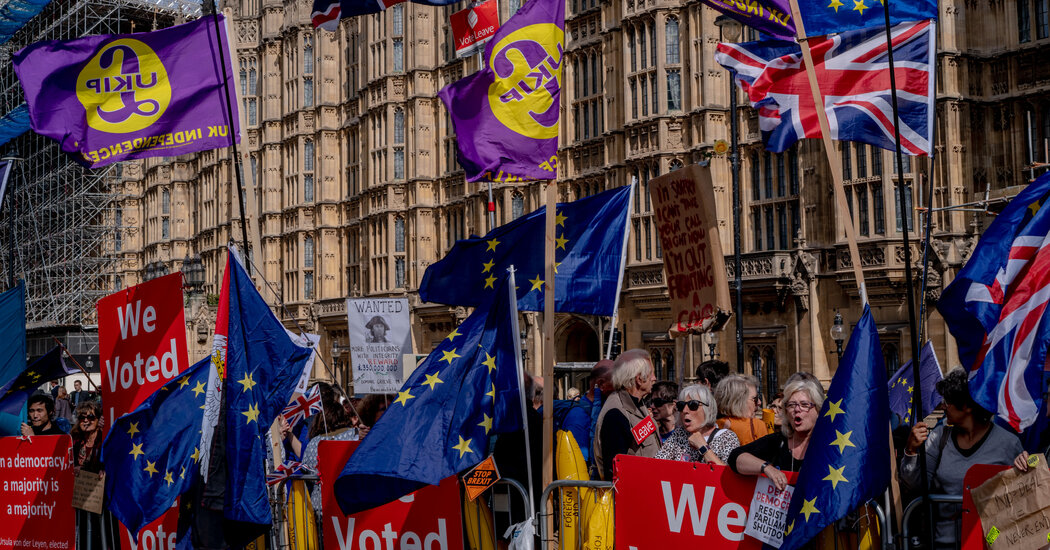News analysis
Britain’s decision to leave the European Union in 2016 was sold to voters as a magic bullet that would revitalize the country’s economy. Its impact is still reverberating.
Reporting from London
Britain has watched President Trump’s tariffs with a mix of shock, fascination and queasy recognition. The country, after all, embarked on a similar experiment in economic isolationism when it voted to leave the European Union in 2016. Nearly nine years after the Brexit referendum, it is still reckoning with the costs.
The lessons of that experience are suddenly relevant again as Mr. Trump uses a similar playbook to erect walls around the United States. Critics once described Brexit as the greatest act of economic self-harm by a Western country in the post-World War II era. It may now be getting a run for its money across the Atlantic.
Even Mr. Trump’s abrupt reversal last week of some of his tariffs, in the face of a bond-market revolt, recalled Britain, where Liz Truss, a short-lived prime minister, was forced to retreat from radical tax cuts that frightened the markets. Her misbegotten experiment was the culmination of a cycle of extreme policies set off by Britain’s decision to forsake the world’s largest trading bloc.
“In a way, some of the worst legacies of Brexit are still ahead,” said Mark Malloch Brown, a British diplomat who served as deputy secretary-general of the United Nations. Britain, he said, now faces a hard choice between rebuilding trade ties with Europe or preserving them with Mr. Trump’s America.
“The fundamental issue remains the breach with our biggest trading partner,” Mr. Malloch Brown said, adding, “If the U.K. ends up in the arms of Europe because neither of them can work with the U.S. anymore, that’s only half a victory.”
We are having trouble retrieving the article content.
Please enable JavaScript in your browser settings.
Thank you for your patience while we verify access. If you are in Reader mode please exit and your Times account, or for all of The Times.
Thank you for your patience while we verify access.
Want all of The Times? .
Source: www.nytimes.com
